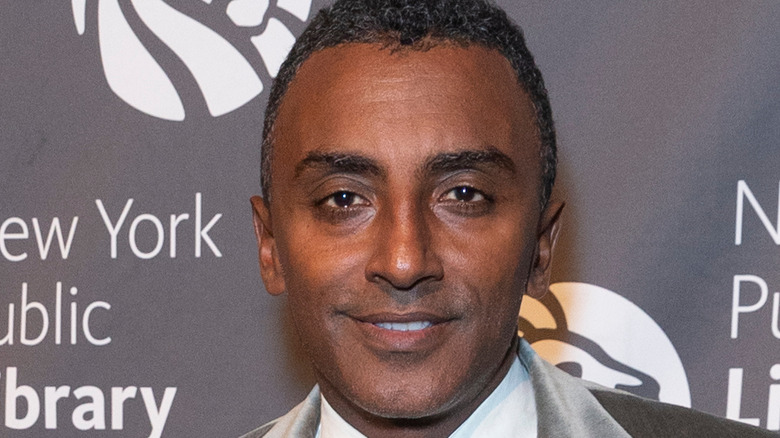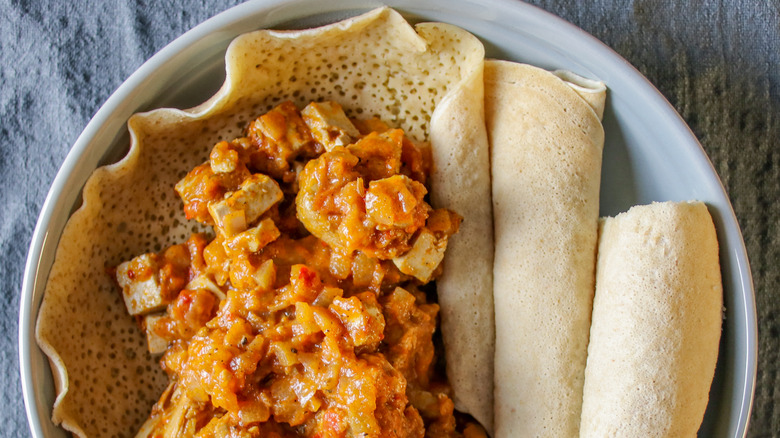Marcus Samuelsson Says This Is Why Americans Should Try Ethiopian Food - Exclusive
Americans are pretty adventurous when it comes to dining out — whether we have Mexican food cravings, are in the mood for regional fare at a Chinese, Thai, Korean, or Japanese restaurant, or just want a traditional Italian meal. One cuisine that may be less popular, though, is Ethiopian food; it didn't even make the list of the most popular international foods in the United States, according to Chef's Pencil, which came up with the rankings based on people's Google searches. And this, according to "Top Chef Family Style" co-host Marcus Samuelsson, is a big missed opportunity to try a unique cuisine.
The Ethiopian-born, James Beard Award winner told Mashed in an exclusive interview that food from Ethiopia, and the continent of Africa in general, will delight Americans — they just need to give it a try! "The great thing with Ethiopian food is ... there are many Ethiopian restaurants ... in every major city in America," Samuelsson said, further explaining the staples. "We eat with this big sourdough pancake. And we eat with our hands." For your first time ordering, Samuelsson recommends a "Doro Wat stew with chicken ... it's a little bit spicy, but it's fun to break that bread [with] chicken." If the idea of eating a pancake (traditionally called injera) and stew with your hands is off-putting, Samuelsson is quick to remind that some of the most popular American foods aren't eaten with a fork and knife, either. "Americans eat with their hands constantly! We eat hot dogs, we eat pizza, we eat tacos," he said. "We eat so many great meals with our hands."
Ethiopian food and soul food have a lot in common, says Samuelsson
If you've never tried Ethiopian food but love soul food, you could be missing out on some of the best eats of your life, Samuelsson added. That's because this type of food has its roots in African food ... and both are quite delicious. "I think a lot about West African food and the usage of rice and grits and how that came to America, for example," Samuelsson explained. "Even barbecuing, the root of barbecuing, how you use fire and smoke, also has origins in Africa. There's many things. ... It's also about having respect for other cultures that for whatever reason haven't been uplifted. And I think my work has always been around, how do you tell the story and how do you uplift more Black stories in American food?"
Samuelsson, who was raised in Sweden and also credits his Swedish grandmother for teaching him how to cook, said that his heritage from both sides has shaped the chef he is today. "I would say [being] Ethiopian, just being African, and being connected to the continent, I see a lot of [that] in American food and especially African-American food — there's so many links to [the] continent of Africa," he said. "Being able to relate to it both from an emotional side but also from a historical side, I think that gives me an understanding [of] Southern food in a different way, for example." Samuelsson further mentioned the advantage we all possess of having different journeys and stories. "Everyone has an advantage depending on how they activate their culture," he said. "That's the beauty in America, everybody has a story and a journey."
Learn more about Magical Elves, the company that produces "Top Chef Family Style" and other cooking shows.

